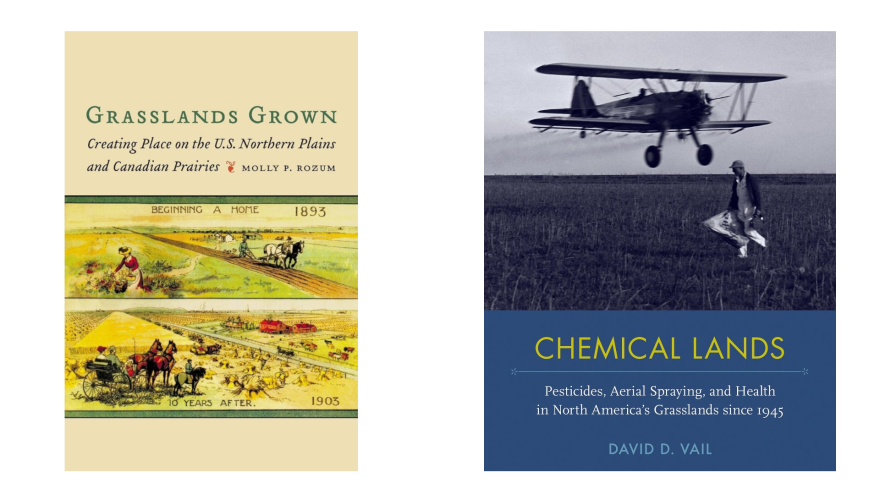Today's Segments
Rediscovering the Plains: Scholars Explore Prairie Identity & Change
While conducting archival research at NDSU, historians Dr. Molly Rozum and Dr. David Vail joined Main Street to share new insights into the cultural and environmental history of the Northern Plains. Rozum, author of Grasslands Grown, focuses on the rise of regional institutions and identity during the mid-20th century. Vail, author of Chemical Lands, examines Cold War-era agricultural practices, chemical use, and risk management. Their complementary research—supported by the Gunlogson Research Grant—reveals the Great Plains as a place of innovation, adaptation, and enduring complexity. From children's stories to chemical stewardship, they argue the region's history offers vital lessons for navigating future challenges.
History and Memory: NDSU and the Legacy of Germans from Russia
Why has North Dakota State University become the cultural home for descendants of Germans from Russia, the state’s largest ethnic group? Historian Dr. Tom Isern explores how the land-grant mission of NDSU aligned with the values and history of this community—deeply tied to the prairie landscape and agriculture. Isern connects this legacy to a vibrant publishing tradition at NDSU Press, which continues to share the stories and scholarship of this distinct ethnic heritage. It’s a conversation about memory, migration, and the role of institutions in preserving identity across generations.
Reclaiming Youth Sports: Brad Strand on Restoring Balance & Joy Part 2
In part two of his conversation with Main Street, Dr. Brad Strand continues to critique the commercialized, adult-driven model of youth sports that prioritizes competition over development. A professor emeritus at NDSU, Strand argues for restoring joy, inclusion, and personal growth as the core values of youth athletics. He outlines how communities can support multi-sport participation, remove financial barriers, and foster lifelong habits of physical activity. His research urges a cultural shift—so that sports once again serve all children, not just the most competitive few.
After the Ice: Michigan’s Forests in Recovery Mode
Northern Michigan is grappling with the aftermath of a historic ice storm that shattered trees and left nearly a quarter of its managed forestland damaged. The destruction has disrupted ecosystems, endangered timber operations, and increased the risk of invasive species. In response, both state agencies and private contractors are racing to clear debris, salvage wood, and prevent ecological collapse. While immediate cleanup is underway, the long-term environmental impacts remain uncertain. The scale of the storm has sparked new conversations about climate resilience and forest management in the Great Lakes region.


